Material Information: Your questions answered
Street.co.uk Co-Founder, Heather Staff sat down with Material Information expert Sally Holdway, Director of Home Owners Passport to answer your questions from our recent joint webinar on How NTSELAT's Material Information Rules can become a valuable USP.
You can watch the sit down here or read below.
What Is Homeowner's Passport?
Heather: For those of you that aren't familiar with what you guys do, would you mind giving us a brief introduction?
Sally: Absolutely. Really great to be here today. So thanks for the invite, Heather. My background is as a conveyancing solicitor.
For the last six years or so, we've been running a product called the Homeowner's Passport, which has been supporting solicitors really with regards to upfront information, but also estate agents with the new Material Information rules as well.
Heather: I know we did a recent webinar. You did that with Stella, didn't you? All about Material Information and I think it's fair to say Material Information poses a lot of opportunities for agents, but also raises a lot of questions and concerns.
So if it's alright with you, can I dive in and ask you a few questions?
Sally: Fire Away.
What Council Tax/Rate Information is Required When Marketing New Builds?
Sally: Yes. So I mean, the starting point to say here, I think, is that the devil is in the detail with Material Information, isn't it? It's all anchored in rules, which we've had really for the last 15 years or so in the Consumer Protection Regulations 2008, that's my “lawyer-ness” coming out there.
But what we got at the end of last year was a more definitive list from Trading Standards based on a three-year project they've been running with a steering group, which included representatives from all areas of the property market.
We now have these 22 areas where estate agents have got much clearer guidance on what is required to go into the information they need for listings and the council tax band is a prime example of that, isn't it? Kind of where the devil is in the detail.
So, for the majority of transactions, that's gonna be really straightforward to obtain. You can clearly get it very easily from GOV.UK or websites like that. But there are some instances where it's slightly more challenging and what the guide says with regards to new builds is that if it's not immediately available, it's still fine to get the listing up, but just be clear on what the position is that it's not yet available, and then just keep a watching brief on when it is available and update the listings at that stage.
Does Material Information Apply to Scotland and Wales?
Sally: Yeah, it sure does. Yeah, absolutely and Northern Ireland as well. So it's something that we've all got to get to grips with.
Though I have to say our colleagues north of the border have probably got life slightly simpler insofar as obviously the transaction process up there generally speaking does involve obtaining more information earlier in the process.
So we are on a bit more of a learning curve, I think in England and Wales.
What Happens If You Can't Get a Particular Piece of Information? Can You List Anyway and Fill It in Later?
Sally: Yeah, and I think we're kind of in the middle of this adoption phase, aren't we at the moment. So as I say the guidance was issued at the end of November last year. But we are also in the process of going through some changes with the portal listings I think, right?
We've literally this month changed how they're formatting the Material Information, so we now have specific fields, and trading standards are obviously talking about what's gonna be happening enforcement wise. But I think we can be fairly pragmatic about it.
Obviously this is a change for estate agents. I think if you can just do your best to obtain as much of the information as you can as early as possible, if it's not available, just be clear in the listings, it's not available yet, but it is to come.
But I would add obviously, with systems like what you've developed in Street.co.uk and tools like we have in the Homeowner's Passport, it really doesn't need to be a time-consuming exercise for agents. There's no reason at all why it should delay listings.
Certainly in the process that we have where we're gathering information from sources like the land registry and information from the vendor, there's no reason why that should take any more than an hour. So I think while some agents are a bit concerned that this could delay listings, I think in practice it's actually not turning out to be a problem.
Heather: Yeah, it does sound more daunting than it needs to be, doesn't it?
What if I lose out on business to an agent not being as thorough, what if I have to keep refusing listings until info is available?
Sally: Yeah, well, I think we will throw that completely the other way around. You know, certainly, at the beginning of the year, that was, I think, a concern that we were hearing from agents. It's like, well, okay, well the agent down the road is not including this information and actually, is this a barrier for us to get the property listed?
If we've got more information, is that gonna put people off? But where we find ourselves now, there's actually a really strong opportunity for agents, particularly in our view now, Rightmove have changed the way that they list properties.
If that's not available, there's huge gaps in the listing. There's just boxes and boxes which say “ask agents” and actually we think that speaks to the expertise of an estate agent.
So whilst we are in this period of time where not all agents are on board yet, but a good swathe of them are, there's a huge opportunity actually to be winning work, we think, on the basis of demonstrating additional levels of expertise and depth of knowledge by making sure those boxes are filled in.
So we absolutely would turn that on its head and say, actually it's more of an opportunity than a threat.
When and How Will Sanctions Be Imposed for Not Following Material Information?
Sally: Again, I think we're on a bit of a journey with this, aren't we? Not to sound too X factor about it, but, the sanctions are in place, you know, so the Consumer Protection Regulations are in place and they come with them sanctions, which can be fines that can even carry a prison sentence.
I'm not aware that anyone actually has been sent to prison. So I don't think we need to get too worried about that. But the law is already in place, so if you aren't complying with the rules and regulations, then you do face that risk.
But I think we have other channels that we need to be aware of now. Going back to the changes in the portals, certainly the Rightmove, Ts & Cs have changed at the beginning of July to say that where agents are persistently not including the information, then that could be deemed a breach of the T's & C's, which could stop an agent listing.
Let's see what happens with regards to that. Interesting One. I think certainly, everything we're hearing from how the market is developing is much more carrot than stick. I think there's a real impetus to support agents because this is a change in the information that we're gathering to make it as seamless as possible. But I think agents do just need to have an eye on the fact that the rules are there and there is the potential that sanctions could be imposed.
How Do You Think Material Information Will Help the Sales Process?
Sally: We've kind of just touched on that a little bit, haven't we? For us it flows through really from the point of listing all the way through to completion. And again, hopefully it's gonna be helping agents with sales progression.
Certainly when you look at any other jurisdiction where they have more information available earlier in the process, the impact on transactions is lower fallout rates and faster transaction times. Where we are in England and Wales at the moment is that conveyancing is taking four to five months, which, you know, certainly, I mean, I'm showing my age now, but when I started in practice, the average was six to eight weeks. It really has slipped over the course of the last 15 years or so.
Material information, I think, because there is such a big crossover now with what I would've traditionally described as the information conveyancing data that I would've been gathering as part of my role, as a conveyancer, a lot of that now is sitting in the estate agents' world.
So it means that we're changing the chronology a bit of how we do things and we're speeding up the transaction further down the line. So, there's opportunities in lots of different areas. We've already talked about the opportunity for agents to be demonstrating expertise, but where this data is available, it also means that can then flow through to conveyancers.
One of the tools that we've developed is what we call contract ready packs. So, whilst we're also collating information from the vendor, we're pulling in things like the title deeds, copies of planning permissions and things like that, which effectively is probably a good chunk of the first stages of a transaction that conveyancer will do, which inevitably means that the transactions are going to go through faster.
So, again, I think it's not just around hopefully making life simpler, having more information available at the outset of the transaction, but also that flowing all the way through to have benefits for estate agents, just having pipelines that are turning over faster than they are at the moment.
Heather: We're hearing a lot from agents about pipelines and how long they're taking. I think any cashflow benefit that's gonna happen from lower fall through rates and shorter processes is only gonna be a good thing.
Sally: Indeed.
Do You Foresee Any Change in the Legislation from the New Labour Government?
Sally: Well, this is kind of hot off the press, isn't it? So, yeah, I mean, I think what we would say is expect more of the same.
If you look at the Labour manifesto, there wasn't a huge amount really in there, which is touching on this particular area. Obviously they've got big commitments with regards to building new houses.
They've already changed the name of the department from “levelling up” back to housing and communities. So I think we can take a steer from that where the focus is going to lie.
But of course, we have had legislation which managed to sneak in just before the election happened, around the digital, competition, and consumers markets, which effectively will be dragging and dropping the existing CPRs into the new legislation, which is looking like there's gonna be powers for the competitions and market authorities to get involved with enforcement as well.
So, whilst there's nothing definitive that's come out certainly in the last few days, I think the direction of travel is probably pretty clear, that this is not gonna go away and I think probably we can expect it to be fairly high on the agenda so far as the new Labour government is concerned.
The Regulation Isn't Just About Listing the Information but Also Verifying Its Accuracy. What Can Agents Do to Ensure the Information They Present Is Correct?
Sally: Yeah, it's kind of a tricky one, isn't it? I think this is a bit of a work in progress. Absolutely, the new guidance is really clear that estate agents now have an obligation to obtain the information and to verify it, and that can be slightly problematic.
Again, I think we would advise taking a pragmatic approach. It's also worthwhile saying as well, whilst we have the 22 new areas which are pretty clear that agents need to be complying with, that's not it. So the guidance does say if there's anything else that you think might be relevant, then you need to include that as well. So agents do just need to be mindful of not just having this as a tick-box exercise, but having a look at it in the whole and thinking, okay, well what do we need to do here?
The way that we support agents with this is effectively through triage. I think the way that the portals are listing it is very similar. There's kind of a yes-no answer to questions like, are there any restrictions affecting the property? If it's a no, that's kind of fine.
If it's a yes, it's worthwhile taking a deeper dive and saying, okay, well what are those restrictions? Is it a restrictive covenant? Is it in the title deeds? It may be at that stage it's worthwhile having conversations with surveyors and or conveyancers.
The guidance is clear that in some situations that might be worth doing earlier on in the process. If you have a cladding issue potentially on a high rise property clearly makes sense to try and get to the bottom of where that's up to, sooner, rather than later.
I think what we would advise agents is make sure you are reviewing the documentation and where there's areas where you think it might be helpful to get more information, then potentially look at instructing a conveyancer early in the process.
How Are the Best Agents Currently Using Material Information to Their Advantage?
Sally: I think it's around not just seeing this as a new compliance burden that we've got to get through, but actually taking that wider perspective and saying, okay, well what are the motivations that sit behind the new rules, which absolutely are around improving the process so far as home movers are concerned, but also they do have the benefit of actually improving things for agents and conveyancers as well.
So I think taking that wider holistic look, and taking a step back and exploring how that can be really supporting the agent's business to be winning more instructions and then also supporting the transactions once a buyer is found.
Could You Share Your Top Three Tips on How Agents Should Be Using Material Information Effectively?
Sally: I'm gonna say the same thing, but slightly differently I think, which is around the opportunities. I think we can carve that up into the chronology of the transaction, can't we?
First off, if you are obtaining the information which is required at the point that you're going to be doing a valuation, then that really can help win instructions. Even downloading the title deeds, which is a real quick and simple process I'm sure most agents are doing that anyway through the land registries portal, just gives you that additional level of insight when you're out there looking to win instructions with regards to your knowledge and expertise about the property.
Thereafter, once you've won those instructions, we really do think that it will make your agency stand out if you are the agent which doesn't have the ask agent boxes appearing in the listings. Again, with regards to attracting buyers, and we all know none of this is new information, right? We're just changing when we're surfacing it.
So if there's a footpath that goes through the back, for instance, and that's something which doesn't suit a buyer, we're getting to the nub of that before an offer is made rather than going two months down a transaction, then everyone pulling out with all the wasted time and costs. So it can really help with regards to that.
The third opportunity is around agents just really being much more in control with regards to the transaction timelines and shortening those pipelines. We would advise absolutely, if you haven't done so already, have a conversation with your local solicitor and surveyor to see what they're doing.
There's many lawyers that we are talking to who are now actively providing tools and services to be supporting estate agents where there might be a tricky issue that crops up earlier in the process and providing support services for vendors such as title fixes. If there's a short lease, for instance, then let's get that sorted before a buyer comes along, so it's not gonna cause a problem further down the line.
I think it's taking that step back and looking holistically at how can we use these material information rules, not just as a compliance headache, but actually use them really proactively to be generating more work and getting that work through the pipeline much faster.
How Is Homeowner's Passport Supporting Agents at the Moment?
Sally: Yeah, well, I think we've certainly seen that increase significantly since the new guidance has been issued by trading standards, again, because agents have a much clearer list of requirements.
This is something which our approach in Homeowner's Passport is to be gathering the information to the conveyancing standards as well. So, the way that we approach that, as I've mentioned, is effectively to be gathering all of the contract pack information much earlier in the process, but leveraging technology to do that, and then almost retrofitting that information to be providing the material information in a report which estate agents can then digest and use as part of their process and drag and drop into the listings.
I think certainly that's an area in which we are seeing much more interest from agents over the course of the last six months or so. But as I've also mentioned, what's really encouraging for us is this collaboration between agents and lawyers. I think in the past, it's not always been as smooth a relationship, but really we are all on the same side and working together to get to the same outcomes for home movers. I think this material information, because we do have this kind of Venn diagram of the data which is now in the estate agents and the conveyancers world, that's really helping to smooth that particular journey. So, again, that's a really positive outcome already, only six months into this journey.
But again, I think there's a lot more to come and certainly we expect the next six months as the new portal listings, the way that they're formatted starts to bed in. We start to see more information around enforcement come out. I think it's just great, obviously, you guys are doing a huge amount of work to be supporting agents with that as well.
To see other tools and services just starting to have more prominence, not just HOP, there's lots of other ones out there as well. But all of this is around making the home movers' life easier, isn't it? As I say, I think we're encouraged by that.
Heather: Yeah, we've done a lot in Street.co.uk as well to try and help agents' lives easier. We've got Property Information Questionnaires that have the material information already pre-populated and things like that. We only hear really great things about Homeowner's Passport as well, so for any agents listening, we'll make sure we link it so people can check you out and speak to you directly about how you're helping.
Sally: Great, clearly. Yeah, always happy to have a chat.
Heather: Amazing. Brilliant. Well, thank you so much for your time today, Sally. I don't think there's anybody in the industry that knows more about this than you, so thank you for sharing your insights.
If you want to understand more about Homeowner's Passport or how Street.co.uk works for the Property Information Questionnaires and how it all links to material information, then please do get in touch.







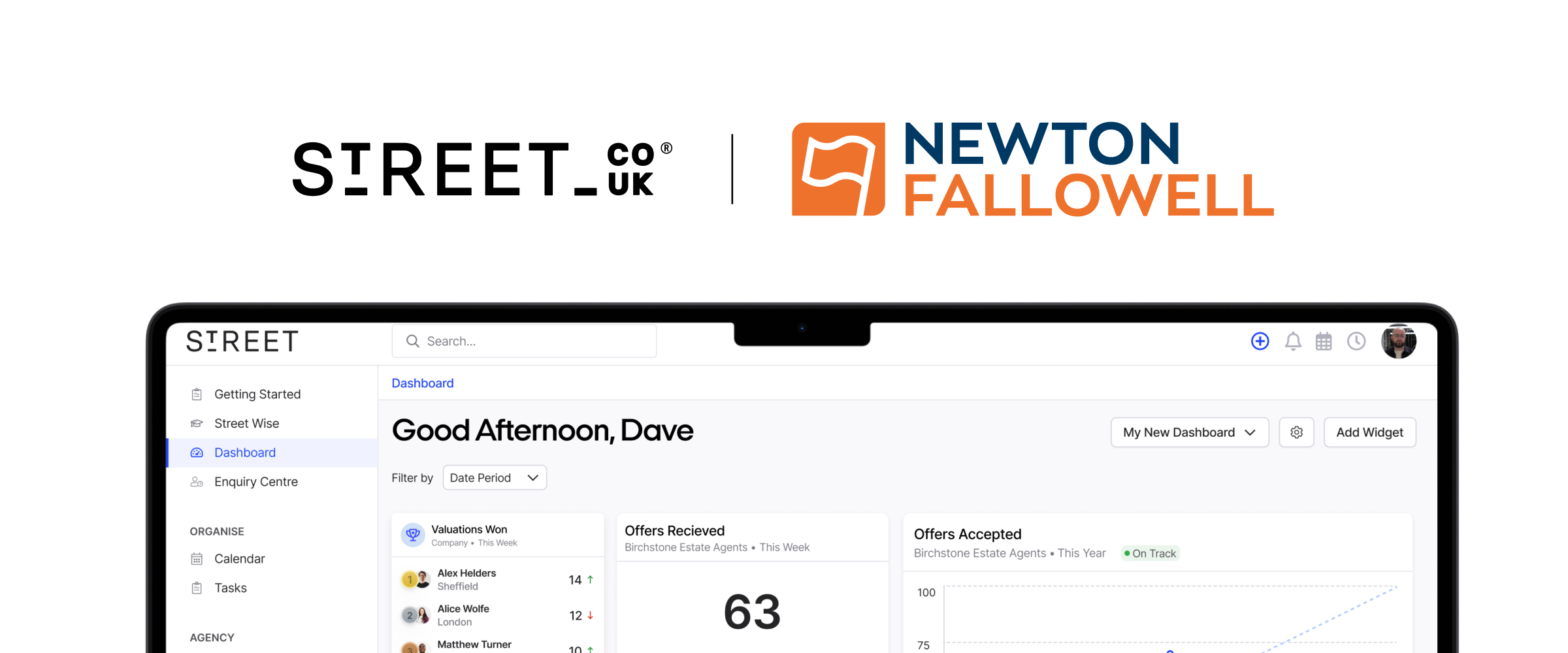
.png)
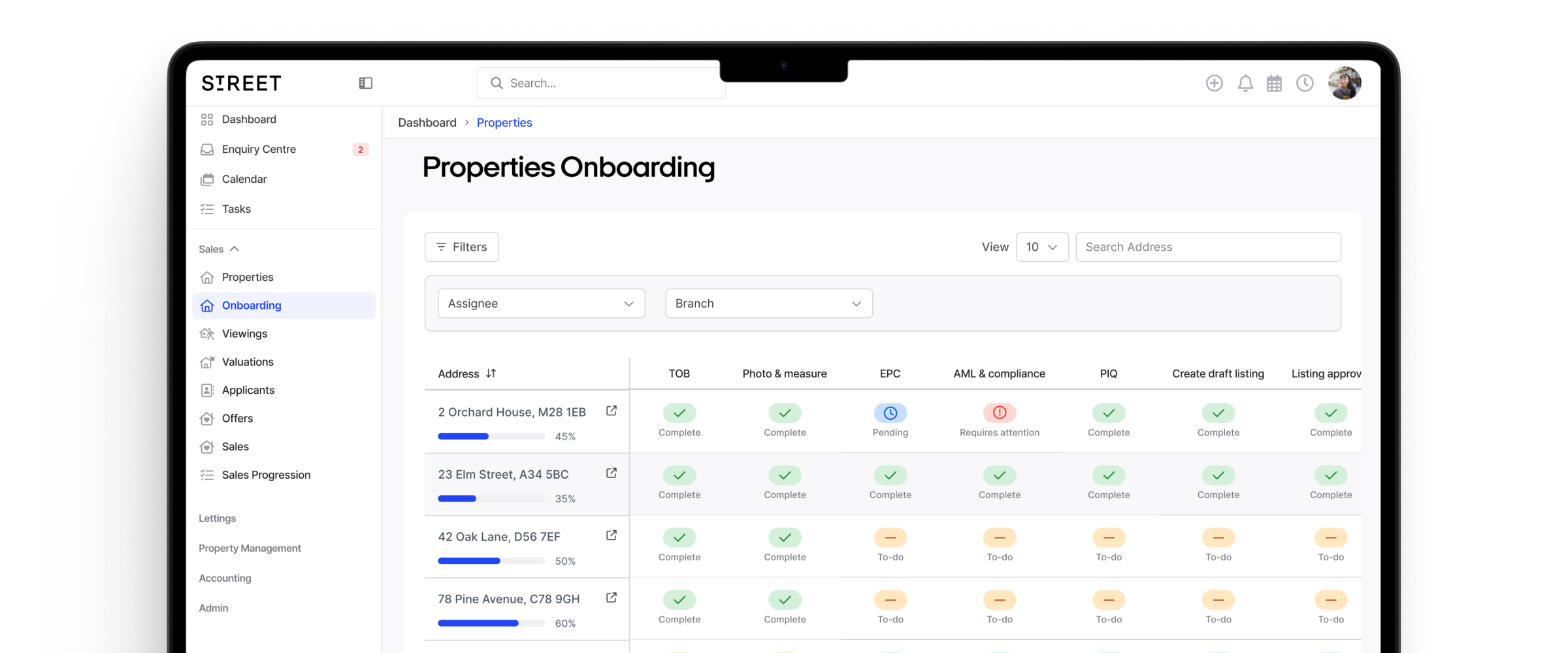





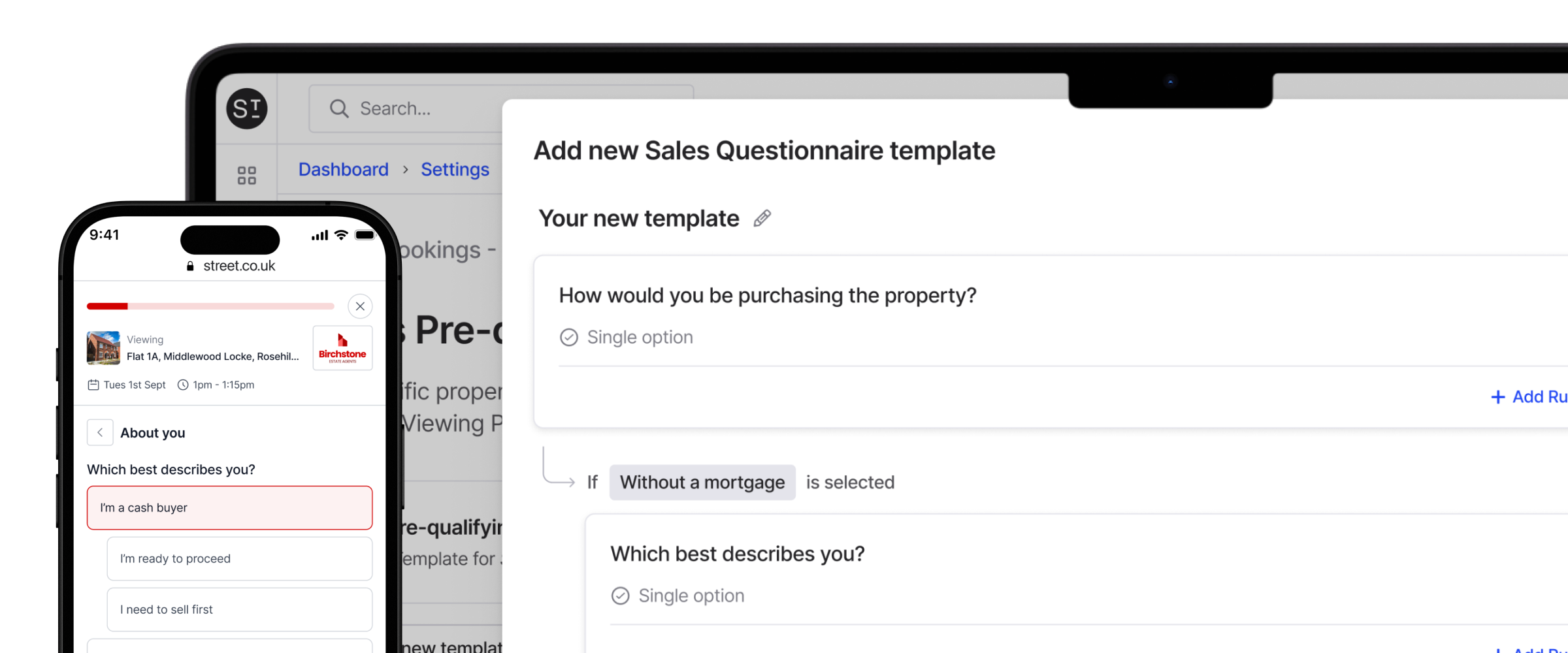

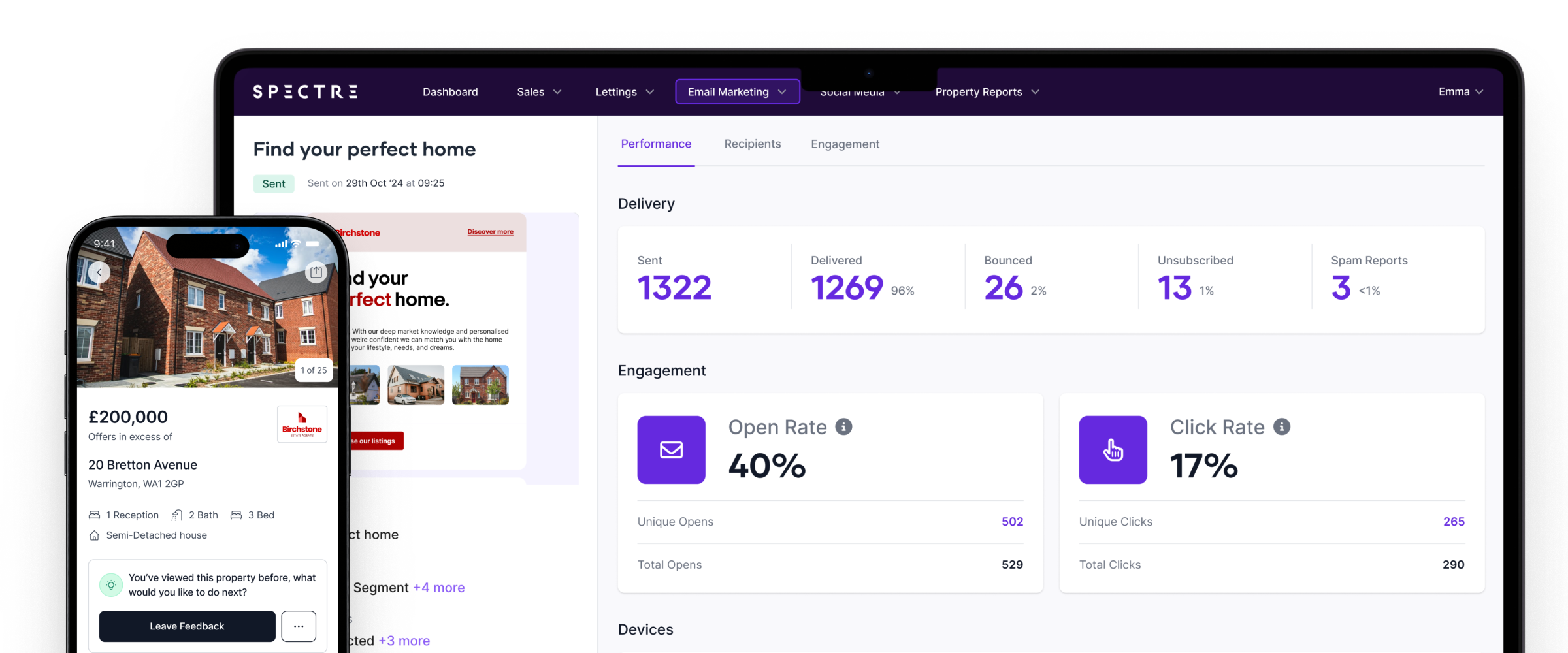
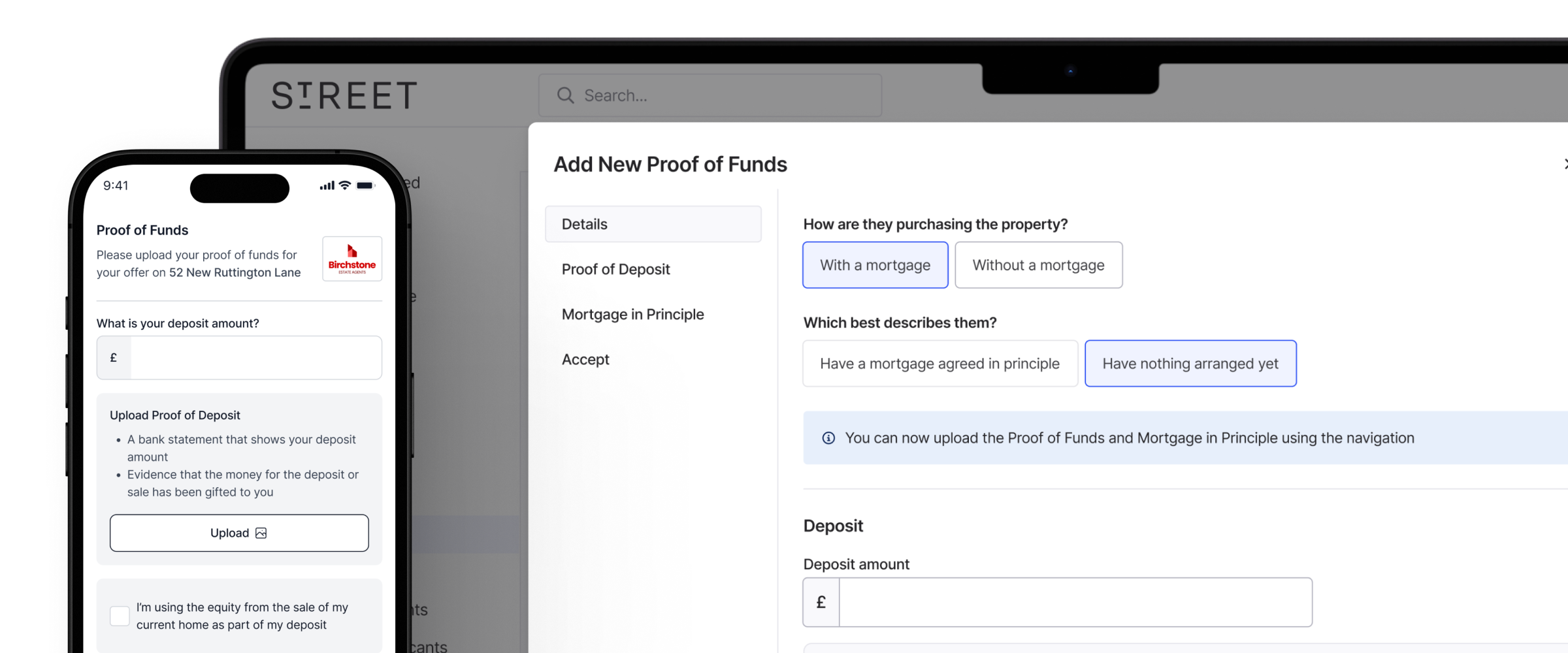
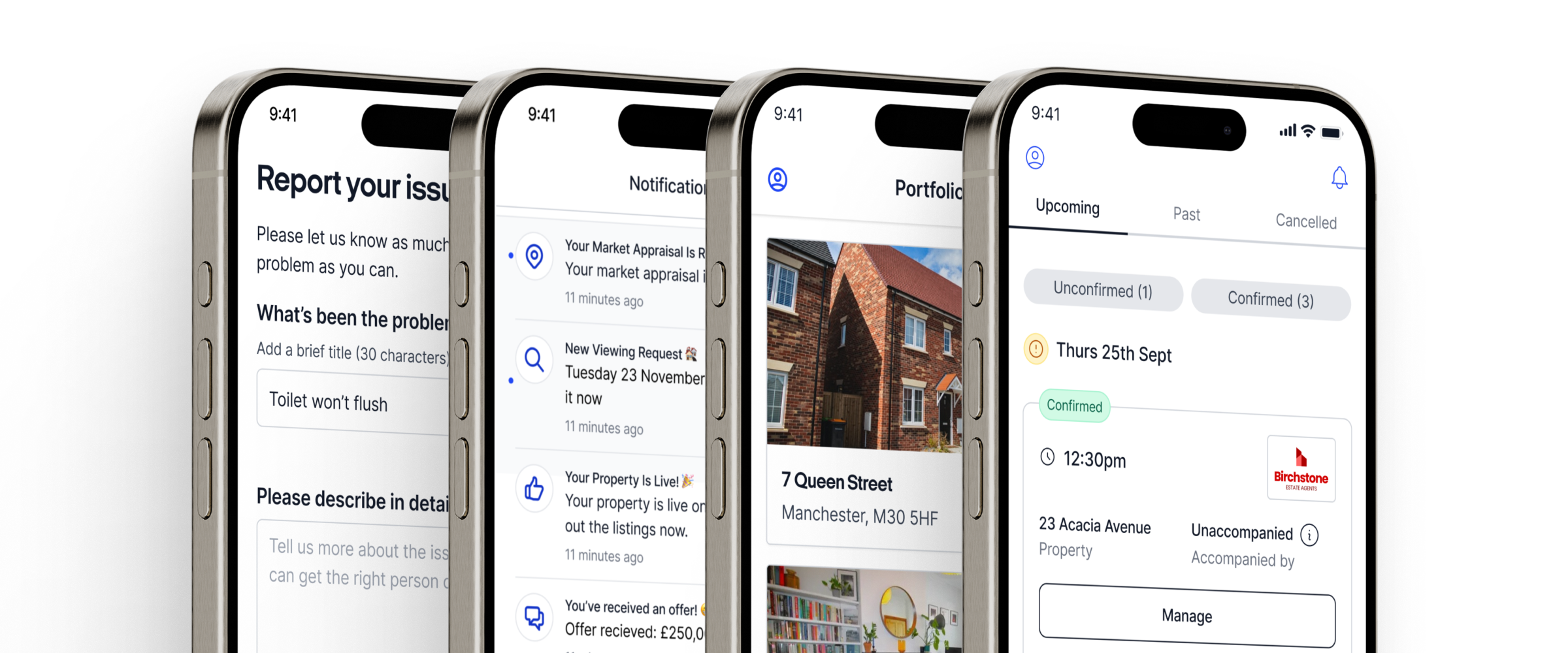




.png)
.jpg)







.jpg)
.png)
.png)
.png)
.jpg)



%20(1).png)
.jpeg)




.png)




.jpeg)



.jpeg)

.jpg)


.jpg)














.png)






.jpg)












